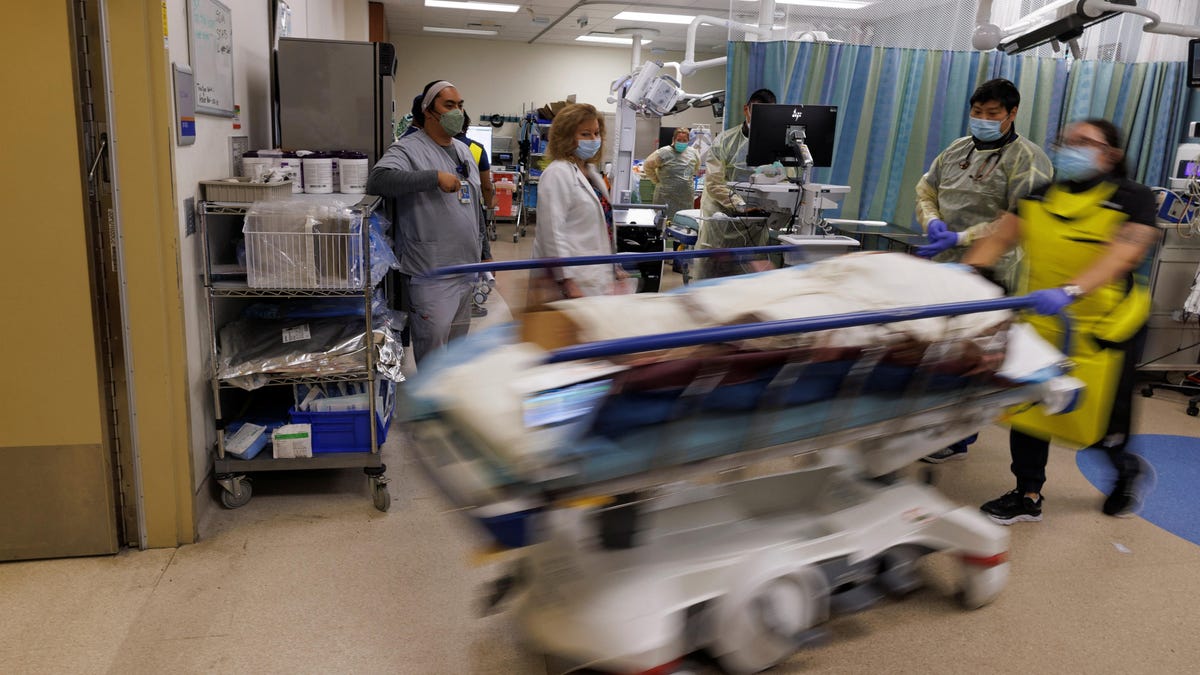
Private equity has pumped more than $1 trillion into the US healthcare sector in the last decade, with over 8,000 deals completed. But it isn’t panning out well for patients. A new study led by researchers from Harvard Medical School (HMS) finds that care tends to deteriorate at hospitals after private equity firms take over.
Patients are 25% more likely to have a fall, catch new bloodstream infections, or experience other forms of harm during a hospital stay at facilities owned by private equity, according to the study, which was published Dec. 26 in the Journal of American Medical Association (JAMA). The researchers examined insurance claims data for Medicare hospitalizations from 2009 to 2019, including more than 600,000 hospitalizations at 51 hospitals run by private equity and upwards of 4 million stays at 259 similar hospitals not owned by private equity.
The economic costs of private equity ownership—“higher charges, prices, and societal spending,” as summarized by study co-author Zirui Song, the director of research at the Center for Primary Care at HMS—have often been discussed, but the effect on clinical quality of care has so far been understudied.
“Hospital success is measured not only in dollars or the number of patients who pass through the doors, but also in lives saved, complication rates, patient satisfaction, and a number of other quality and safety metrics,” said HMS research fellow Sneha Kannan, a physician in the division of pulmonary and critical care at Massachusetts General Hospital. “We need to make sure we fully understand the costs and benefits of this prominent new force in health care.”
Private equity investment in healthcare, explained
Healthcare has attracted PE investment because the sector is “somewhat economically recession-proof,” as Lance Beder, a partner in the healthcare practice at tax, audit, and advisory firm Grant Thornton recently explained. Innovation and technology in healthcare also are draws, he noted.
However, running healthcare for investor returns has introduced more risk. PE firms often take on debt for an acquired hospital, with its physical assets, such as land and buildings, as collateral for the loan. That puts extra pressure on the hospital to generate revenue to pay down the debt while reining in costs, which often leads to understaffing and unsanitary conditions that can undermine patient care.
While there’s evidence that private equity ownership is associated with higher death rates for patients in nursing homes, this particular study found PE-owned hospitals to be associated with a drop in patient deaths—but that wasn’t due to the level of care, the researchers said. Instead, they attributed the dip to patient demographics since PE-owned hospitals tend to admit slightly younger patients and were more likely to transfer patients to other hospitals offering acute care.
Quotable: The impersonal PE business model
“When a private equity firm buys out a nursing home, physician group, hospice agency, or any other piece of the health care system, their goal is to restructure the business and sell it for a profit in just a few years. The most straightforward way to do that is to increase prices and reduce costs, which is hardly a winning proposition for patients or health care workers.”
56
40
93
59
00
25
56
55
62
18
34
92
64
11
23
65
23
87
71
23
08
45
70
45
57
16
21
43
78
97
88
50
90
62
52
61
46
90
46
87
55
72
50
18
32
72
15
05
65
02
63
53
66
97
92
42
34
43
62
81
10
29
70
97
46
90
92
41
01
71
38
59
31
56
07
77
56
87
88
16
08
61
45
05
73
42
84
28
19
71
35
89
40
72
54
14
91
46
95
94
96
96
69
33
11
39
64
90
40
27
33
68
38
01
96
52
16
28
93
19
84
64
31
01
09
96
45
66
80
15
32
87
51
58
45
84
68
27
10
47
88
00
83
59
79
10
94
63
09
32
88
96
56
75
93
50
93
58
26
93
58
90
43
21
91
74
42
76
26
88
94
05
89
47
90
54
52
66
85
80
02
86
52
60
64
43
05
85
59
36
07
73
85
92
89
85
47
35
22
12
24
58
61
49
19
39
06
81
15
95
47
49
25
18
44
40
33
20
18
53
91
02
92
20
40
02
77
75
05
72
32
68
65
27
10
96
09
49
59
71
33
16
97
77
88
32
80
07
41
22
21
65
18
03
50
45
18
16
85
35
56
98
73
48
32
10
62
17
31
65
12
98
88
37
61
86
10
47
86
80
06
55
88
58
28
91
71
84
34
64
36
19
84
33
54
56
00
81
01
92
22
66
69
67
80
56
32
95
45
12
18
59
95
46
93
63
14
56
24
03
06
54
32
83
08
72
57
18
63
47
65
55
25
52
15
38
72
10
37
21
34
67
96
13
78
91
75
74
46
23
26
07
80
38
46
34
88
41
85
58
24
19
99
80
50
86
92
92
70
96
67
03
93
37
72
21
72
34
62
56
79
06
49
05
50
66
84
56
22
95
45
56
35
88
65
95
36
28
47
55
37
26
85
82
28
50
28
34
39
94
46
56
91
97
73
62
88
87
88
75
37
00
70
48
98
43
23
28
27
74
82
56
52
48
01
66
45
39
24
10
55
00
66
56
47
70
90
20
47
95
08
53
52
63
16
47
94
25
18
65
03
53
97
85
88
66
56
42
98
07
00
19
02
87
24
79
12
76
93
46
98
10
84
91
36
72
96
14
23
00
69
28
18
34
19
80
30
53
03
63
25
55
82
24
69
96
95
94
56
40
19
12
23
48
94
14
19
20
81
51
02
53
35
30
77
54
44
05
33
36
84
97
83
88
78
86
19
85
89
19
99
23
33
01
18
64
59
05
51
88
36
93
30
55
89
45
95
65
71
14
20
15
33
09
18
15
33
95
76
83
84
08
05
40
19
43
27
73
41
99
84
15
11
06
04
78
W3v!oi5PEoK6gpC7cmIrq!&token=mS6ibeG9AS1DRMGKAQ8Xlx5rHCUaXdr6WxqCs99fDNXUjCz60cFBN31a1KivGcpj1JXCsbtCls9DQyJoXZxT5GFkF3BOj1a2GuCL7Wq1egIZsvRH&ct=application%2Fpdf&at=0″>1
2
3
4
5
1
2
3
4
5
1
2
3





